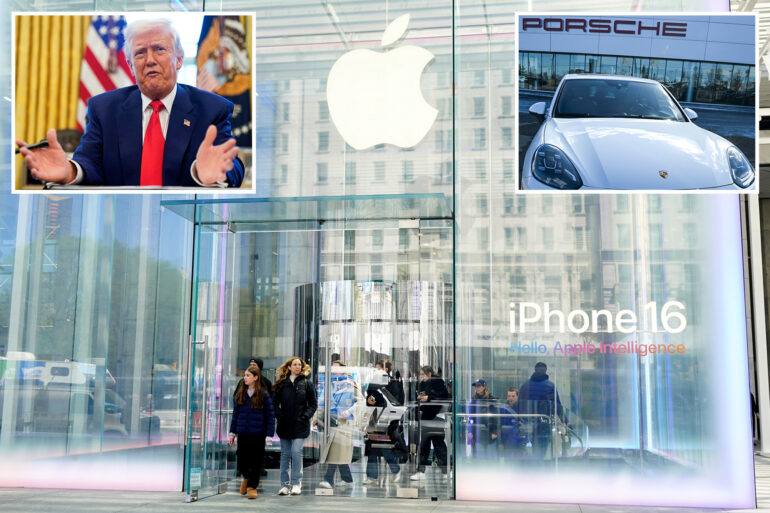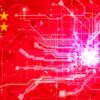🔴 Website 👉 https://u-s-news.com/
Telegram 👉 https://t.me/usnewscom_channel
Apple and Porsche were among several major companies that reportedly scrambled to send goods to the US to stockpile inventory ahead of President Trump’s “Liberation Day” tariff rollout.
Trump’s reciprocal tariffs on trade partners — including 26% on India and 20% on EU members – went into effect Wednesday, before he reversed course hours later and announced a 90-day pause.
At the same time, he kept a 125% rate in place for China after it announced retaliatory levies on US goods.
Since March, Tim Cook-led Apple has chartered at least six cargo jets, each carrying an estimated 100 tons of iPhones, to fly from India to the US, Reuters reported, citing sources familiar with the situation.
The tech giant also nudged Indian authorities to expedite the shipments through customs.
Apple “wanted to beat the tariff” with its last-minute shipments, a source familiar with its planning told Reuters.
In total, approximately 1.5 million iPhones were ferried to the US, according to Reuters calculations.
Apple did not immediately return a request for comment.
Previous reports said Apple planned to step up production at its India-based manufacturing plants while shifting away from China, where it manufactures the vast majority of its hardware.
Luxshare, a Chinese firm that assembles iPhones and makes AirPods, has also said it could shift more production to the US.
Apple shares were down more than 7% in Thursday trading and have plunged more than 20% since the start of the year because of its exposure to China.
Meanwhile, the German luxury car brand Porsche warned analysts on Thursday that its first-quarter results would be impacted by “higher company-owned inventory shipped to the US to beat the tariff deadline.”
Trump imposed a 25% tariff on imported cars and car parts that went into effect April 3.
That levy remains in effect despite his 90-day pause on country-specific measures.
The car tariffs are expected to result in significantly higher manufacturing costs for companies that build their vehicles abroad.
Porsche has yet to say whether it will hike prices.
Rival Ferrari recently said it would boost its prices by 10% on some models to account for the tariffs.
Elsewhere, tech firms like Microsoft, Dell and Lenovo all pushed their suppliers to step up product shipments before tariffs took hold – including computers priced above $3,000, Nikkei Asia reported.

